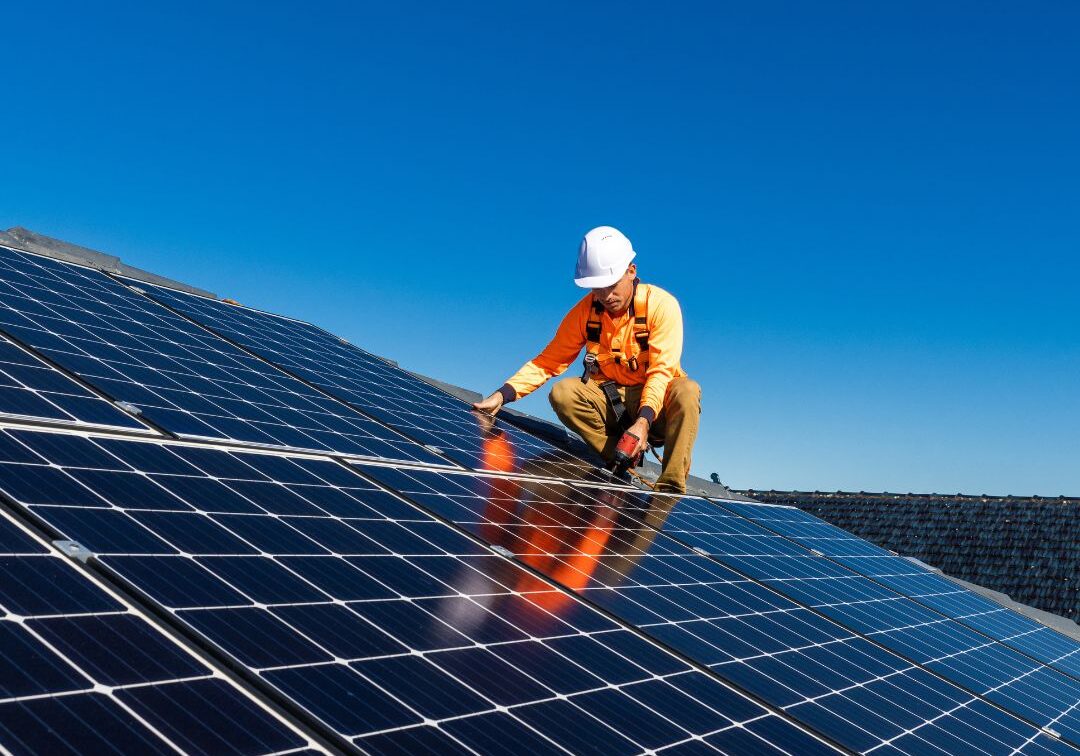Solar Installer Checklist

Hiring a Solar Installer: Contractor Checklist
1. Choosing the right solar installer is crucial to ensure a smooth installation process and a reliable, efficient solar system. Here’s a checklist to help you evaluate contractors:
- Credentials: Ensure the installer is licensed, insured, and has a good reputation. Look for certifications like NABCEP (North American Board of Certified Energy Practitioners).
- Experience: Check how long they’ve been in the business and if they have experience installing solar panels similar to your home setup.
- References and Reviews: Ask for customer references and check online reviews. A reputable installer should have positive feedback and a solid track record.
- Warranty and Maintenance: Confirm that the installer offers warranties for the system (usually 25 years for panels) and that they provide maintenance support if needed.
- Transparency in Pricing: Ensure that the installer is clear about the cost, including all components, labor, and any hidden fees.
- Involvement in the Process: The installer should take time to assess your home’s solar potential, including roof condition, sunlight exposure, and energy needs.
2. How to Evaluate Contractors' Solar Panel Quotes
When evaluating quotes from different contractors, it's important to understand what’s included in each proposal. Here’s a breakdown of the key aspects to consider:
- Cost per Watt: Compare how much each installer charges per watt. This will give you a clearer idea of the price and whether you’re getting a good deal.
- System Size: Make sure the proposed system size matches your energy needs. It should be based on your current energy usage and your home's solar potential.
- Included Components: Look at what’s included in the quote — solar panels, inverter, mounting system, and labor. Verify if they’re using high-quality materials and if the installation process is fully covered.
- Inverter Options: Ensure that the inverter is compatible with your solar panels and suitable for your energy production goals.
- Financing and Incentives: Check whether the installer offers any financing options, rebates, or tax incentives that could lower your upfront costs.
- Project Timeline: Understand the estimated timeline for installation, from the initial consultation to the final connection to the grid.
3. Solar Panel Installation Process: What to Expect
Here’s a general outline of what to expect during your solar panel installation:
- Initial Consultation and Site Assessment:
- The installer will visit your home to assess your roof’s solar potential, look for any obstacles like shading, and discuss your energy needs.
- System Design and Proposal:
- Based on the assessment, the installer will design a custom solar system for your home. They’ll provide a proposal with costs, expected energy output, and timeline.
- Permitting and Paperwork:
- The installer will take care of obtaining necessary permits and handling paperwork, including applications for tax credits or rebates.
- Installation:
- Once all permits are in place, the installation crew will set up the solar panels, inverter, and wiring. This typically takes 1-3 days, depending on the size and complexity of the system.
- Inspection and Connection:
- After installation, the system will be inspected by a local authority to ensure everything is compliant. Once approved, the installer will connect the system to the grid and activate your system.
- Activation and Monitoring:
- After activation, you’ll begin generating electricity. The installer should offer a monitoring system that lets you track the performance of your panels.
4. Do Solar Panels Increase Home Value?
Yes, solar panels can increase the value of your home, though the amount can vary depending on a few factors:
- Average Increase in Home Value: Homes with solar panels can see an increase in value of 4-6% on average. This can translate to thousands of dollars in added value, depending on the location and property value.
- Market Demand: In areas with high demand for energy-efficient homes, the value increase could be even higher.
- Energy Savings: The appeal of lower energy costs over time can make your home more attractive to potential buyers.
- Appraisals: Some appraisers may factor in the savings from solar energy into their valuation, making your home more valuable compared to similar properties without solar panels.
These resources should help you navigate the solar installation process and ensure you get the best results from your investment. If you’re considering going solar, carefully evaluating contractors, understanding the installation process, and knowing the benefits of solar are key steps in making the transition to renewable energy.



